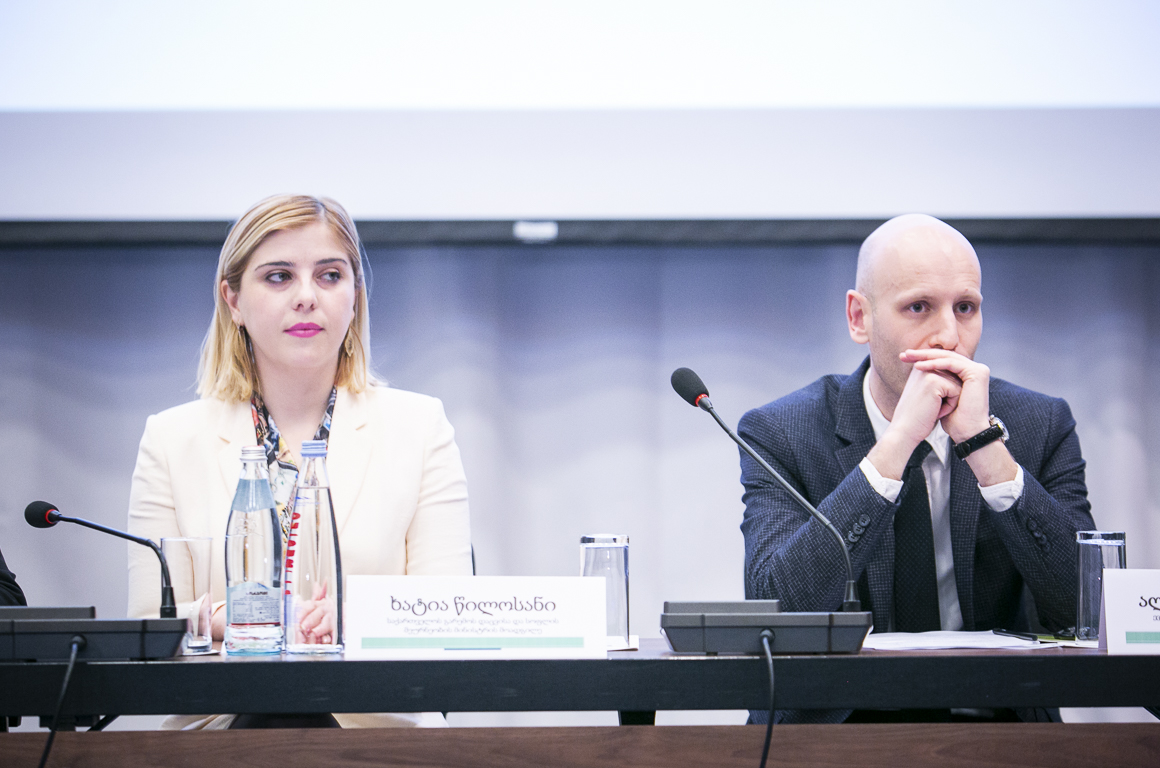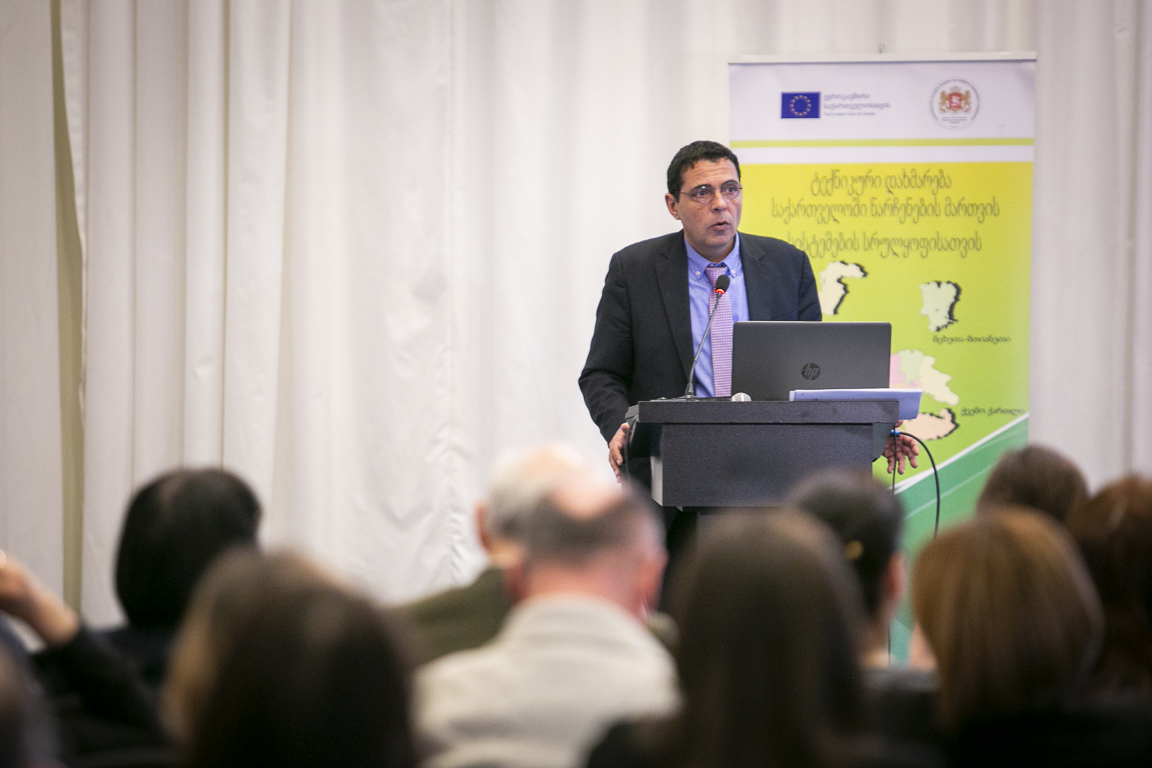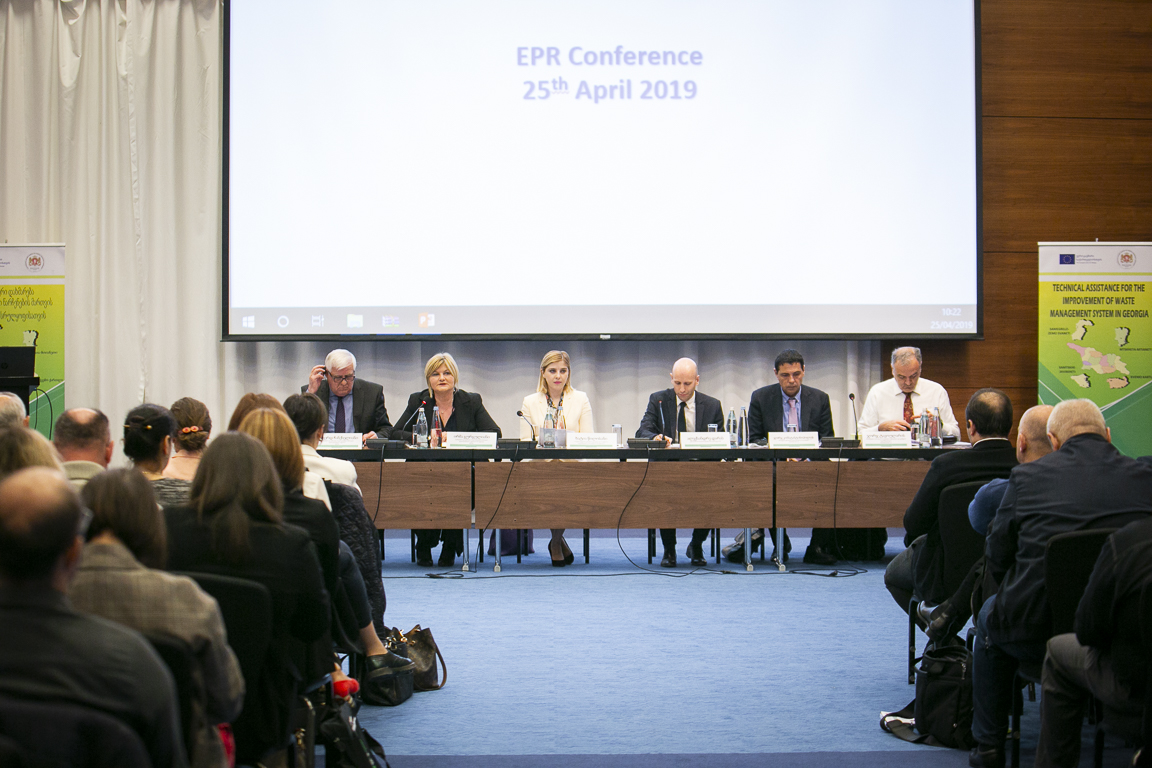News
Presentation on extended producer responsibility legal acts
The presentation on extended producer responsibility legal acts was held on 25 April 2019, at the Radisson Blu Iveria Hotel, attending by more than 150 representatives of central and local authorities, international and donor organizations, private sector, trade chambers, business associations and other stakeholders.
The presentation was conducted with the joint efforts of the Ministry of Environmental Protection and Agriculture of Georgia and EU Technical Assistance Project, which aimed to provide stakeholders with the information on extended producer responsibility , as well as sharing international practice and best practices.
At the event, Deputy Minister of Environmental Protection and Agriculture of Georgia, Khatia Tsilosani and Alexandre Darras, Sector Coordinator on Connectivity, Energy, Environment & Climate Change at the Delegation of the European Union to Georgia addressed to participants.
International and local experts presented projects on legal acts on packaging waste, batteries, accumulators, transported vehicles, tires and used oils developed within the frame of the European Technical Assistance Project, they also highlighted issues related to the institutional arrangement and future steps.
Approximately 900 000 tons of municipal waste is generated in Georgia annually, containing about 1000 hazardous and non-hazardous substances. The extended producer responsibility is a successful model of waste management implemented in Europe. it implies the responsibility of the manufacturer's producer / importer to collect and process hazardous specific waste which pose a threat to human health and environment.
Georgia's waste management code defines the extended producer responsibility for specific waste that will come into effect from December 2019. Specific waste include: packaging waste (plastic, paper, cardboard, wood, metal, glass), residual electrical and electronic equipment, tires removed from the use, transported utility vehicles, used oils, used batteries and accumulators.
The extended producer responsibility is a new concept for Georgia, which requires appropriate legislative framework and an adequate level of consciousness required for public and private sector. Since 2017 with the support of EU and other donors Ministry of Environmental Protection and Agriculture of Georgia actively works in this direction.
,
The concept of EPR was first formally introduced in Sweden by Thomas Lindhqvist in 1990 when a report was submitted to the Swedish Ministry of the Environment
EPR promotes:
• Waste- collection and optimum utilization of the natural resources
• Introduction of waste recycling and other forms of restoration
• Reduction of waste that goes to landfills
• Safe Processing of Hazardous Substances
• Using resources and valuable secondary raw materials
• Improvement of environmental indicators embracing all operators (manufacturer, importer, distributor, consumer, collector, removable, recycling implementer and exporter) involved in the life cycle of various products
• Creating a better design of the product
• Creating new enterprises and jobs, and most importantly,
• Reducing negative impact on human health and environment



